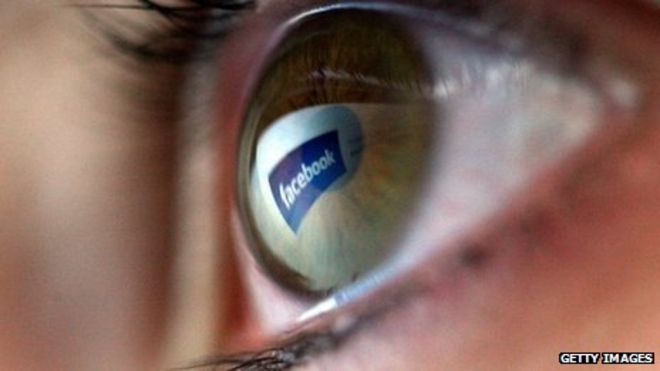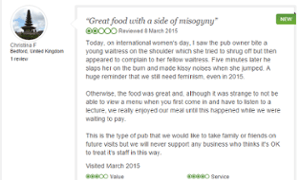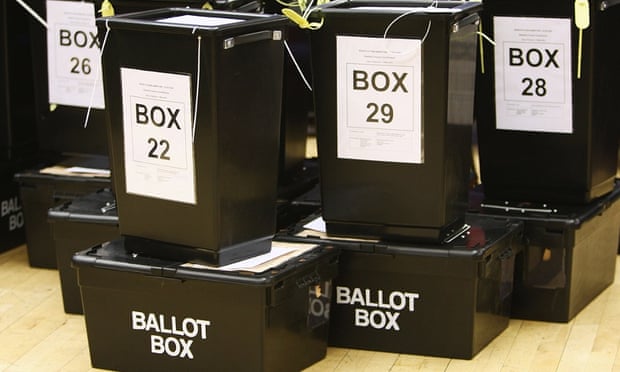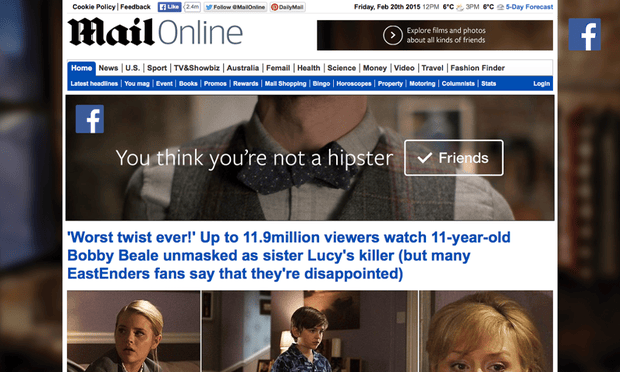My chosen industry is: Political Activism
Audience
1) How has new and digital media changed the audience experience in your chosen industry?
New and digital media has given audiences a platform to conform together and fight for their rights and beliefs. This is done through social media and online websites, therefore has enhanced audience experiences.
2) Has new and digital media changed the way the audience consume your chosen product?
Audiences involved in political activism would have to find other ways to communicate e.g. phones, letters and face to face meetings. However, new and digital media now allows audiences to easily connect and communicate through the internet e.g. social media, forums, chat rooms etc.
3) Has the size of the audience changed as a result of new and digital media?
New and digital media has drastically increased the size of audiences involved in political activism. It allows people to get together and protest as a mass.
4) What are the positive changes new and digital media have brought to the audience of your case study? (E.g. greater choice, easier access etc.)
In particular, I will be looking at Everyday Sexism. This has bought positive changes to audiences through new and digital media as men and women all over the world are able to connect through the website and social media e.g. Twitter and share their stories/experiences. This has been a positive impact on others as they have found confidence to stand up for themselves and speak out against sexism.
5) What are the negative changes new and digital media have had on your chosen audience? (E.g. quality of product etc.)
Some people (particularly men) have been provoked through Everyday Sexism campaigns instead of enlightened. Therefore, have tried to blame women for their actions e.g. women dress in revealing ways to attract attention from men, whether it is positive or not it is the females fault. It has even encouraged men even more to be sexist against women as they do not like the fact that they are standing up for themselves.
6) What about audience pleasures - have these changed as a result of new and digital media?
- Surveillance has increased as people are more aware about activist situations and sexism through social media e.g. Twitter and Facebook.
- Personal Relationships have developed as people are able to get together through social media and stand up for their beliefs.
- Personal Identity has improved as people involved in The Everyday Sexism Project for example were able to realise the situations they have been in are not right and they need to put a stop to it.
7) What is the target audience for your chosen case study? Write a demographic/psychographic profile.
Demographics:
A-E. The Everyday Sexism Project does not depend on a person's class or status. Everyone who has been involved in a situation where they have felt assaulted or abused by the opposite sex is able to take part in the project and share their story.
Psychographics:
I believe Strugglers and Reformers would be the audience for Everyday Sexism as they seek enlightenment and escape from their situations/past experiences.
Institution
1) How has new and digital media had an impact on ownership or control in your chosen industry?
New and digital media has lead to a greater ownership and control in political activism. By more people conforming together, control of situations has heightened.
2) What impact has new and digital media had on ownership in your chosen case study?
Laura Bates started and is the founder of The Everyday Sexism Project. New and digital media has not changed this, however more people are taking charge of their personal situations.
3) How has new and digital media changed the way institutions produce texts?
New and digital media has allowed Laura Bates to make pages on social networking sites such as Twitter and Facebook, as oppose to having a website only. This has helped increase awareness of her project and sexism.
4) How has new and digital media changed the way institutions distribute their product?
Institutions are able to distribute their activism projects through a mass basis through social media and online sites.
5) How might new and digital media threaten your chosen industry?
Although new and digital media gives activists a voice to stand up for their beliefs, it also gives people a platform to criticise. This can be a threat to those who are fighting for their rights as others can easily put them down through social media and comments etc.
6) How has new and digital media changed the way your chosen industry is regulated?
New and digital media means that Laura Bates has to spend more time regulating content as it is on a wider scale such as social networking sites as oppose to just the project's website.
UGC
1)What examples of user-generated content can you find in your case study?
Social networking sites e.f. Twitter, Facebook and Instagram, books, blogs, speaking out against sexism.
2) How has UGC changed things for audiences or institutions in your chosen case study?
User generated content has enabled audiences to share their thoughts and stories. It has also been beneficial for the original project as more people are aware of sexism issues happening in society today.
Marxism, Pluralism and Hegemony
1) What would be a Marxist perspective of the impact of new and digital media on your chosen case study?
Marxists believe that large cooperation's control online content in which new and digital media is shown through. Therefore, they would argue that they are able to control what generates through social media and what gets taken down.
2) How would a pluralist view the impact of new and digital media in your chosen industry?
Pluralists would argue they have power to leave comments and make social media pages in order to protest. Moreover, Twitter and Facebook has allowed people to plan protests, which has heightened their success. The Everyday Sexism Project has been shared virally, where people have come together to share their stories and personal experiences.
3) Are there any examples of hegemony in your chosen industry or case study?
An example of hegemony is male dominance over females as The Everyday Sexism Project fights against those who think it is okay to get away with sexually harassing or abusing women.
Globalisation
1) How has globalisation impacted on your chosen industry or case study?
Globalisation has helped raise awareness for sexism not only in the UK, but all over the world. For example, it has encouraged protests in other parts of the world such as India where a group of females carried out a protest for justice against a nun that was recently involved in a gang rape. By women all over the world sharing their experiences, they are also able to get together and fight for their rights as other women give them confidence.
2) In your opinion, has globalisation had a positive or negative impact on your chosen industry and case study? Why?
I believe globalisation has had a positive impact on my case study as it has given women all over the world confidence to stand up for themselves. Without this, women would be unaware of their rights and continue living lives where they feel at threat by men who are more dominant.
3) Can you find examples of cultural imperialism in your case study or industry? (The 'Americanisation' of the world)
The Everyday Sexism Project is an example of cultural imperialism. This is because it is carried out in countries such as India, where in the past protests carried out by women fighting for their rights never would have occurred. However, this project has given women from all over the globe confidence to stand up for their rights and speak out against sexism and put an end to it.
Social media
1) How has your industry or case study used social media to promote its products?
Pages have been created on social networking sites such as Facebook and Twitter. These have been popular as the Twitter page @EverydaySexism has 197K followers. The Facebook page has 12,356 likes/supporters.
2) Provide examples of how your case study has used social media and explain the impact this would have on audiences.
As The Everyday Sexism Project has created online pages on social media, audiences have joined the pages, following them and liking content. They have also shared links with other people on social media therefore more awareness of the project and real life scenarios have been shared.
3) Is social media an opportunity or a threat to your industry and case study?
Both. Although social media allows activists to get together and cause debate. There are also threats as people who disagree with their beliefs will try to bring them down by leaving negative comments or even making their own pages going against their protests.
Statistics
1) What statistics can you find to illustrate the impact new and digital media has had on your industry or case study?
- There are over 50,000 users of The Everyday Sexism Project
- 25,000 entries in over 15 countries
- Twitter has 197k followers
- Facebook has 12,356 likes/supporters
2) What impact have the statistics you have found had on institutions in your chosen industry?
The impact that The Everyday Sexism Project has had is that it has encouraged audiences to speak out in relation to other protests and subjects.
3) What has the impact been for audiences?
Audiences feel confident and have more encouragement than ever before to stand up for themselves and fight for their rights and against sexism.
Theories
1) What media theories can you apply to your chosen industry and case study?
- Judith Butler-Gender roles: Judith Butler talks about the way males and females are bought up according to gender stereotypes. For example, girls play with pink feminine toys whereas boys are associated with blue, masculine activities. This relates to my case study as it reinforces the reasons for sexism, due to the male upbringing.
- Levi Strauss-Binary opposites: Binary opposites can be related to my case study as sexism is about male vs females. It is about the domination of one gender over the other.
- Hypodermic needle model: This theory can be linked to my case study as it can be argued that society inject values into women, that male abuse/domination is acceptable and normal. This could be the reason why women accept it and do not speak out because society has made them afraid and ashamed. However, The Everyday Sexism Project is created to banish these values.
Issues/debates
1) What media issues and debates can you apply to your chosen industry and case study?
What other texts or institutions are also relevant to your case study? What would be good secondary texts or examples to use to support the findings of your independent case study?
101 Wankers is a page where female cyclists share their experiences of incidents where they have been riding on their bike and have encountered sexual/sexist comments/abused by men. For example, one female cyclist stopped on the road at a traffic light and had a man pull down her top and ask her whether she put this much effort into the bedroom. Women cyclists use this page to expose sexist people on the road and share their experiences.
Catapult is a website used to spread awareness on sexism. They deliver talks about sexism, gender stereotypes, body image, consent and many other issues in schools and universities across the UK. They also work closely with businesses, delivering talks on discrimination and harassment to make employees aware of their rights, and employers aware of their responsibilities.
Emma Watson recently spoke out about sexism and revealed experiences she faced as a young girl/teenager in which she felt sexually abused but did not say anything. On this website, she reveals her 11 best responses for fighting sexism during her #HeForShe Twitter Q&A.
Laura bates, founder of The Everyday Sexism Project has started a #FBRape campaign. Companies pull adverts from Facebook as networking site refuses to remove 'anti-women' content: #FBRape campaign gets 50,000 tweets of support in just one week.





















